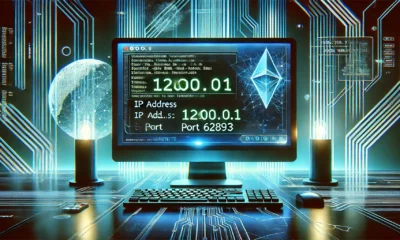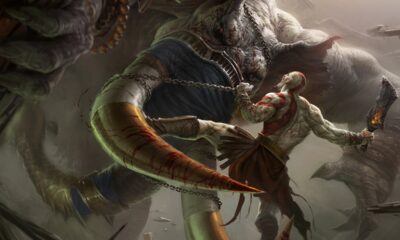This article was originally published as a user blog post on Game Informer.
Part 1
Sooner or later, a lot of good things come to an end. Enjoyable periods in life, friendships, and our favorite TV shows either abruptly halt or gradually fade away into history and our memory banks of nostalgia. The same applies to video games in a more-than-average way. Franchises and series that thousands upon thousands of fans love have died out or remained in a cryogenic, sleep-like state for years. Spyro The Dragon and Crash Bandicoot – crazy, fun 3D platformers with memorable worlds and characters – got stuck in the dreaded mess of being handed around by mediocre developers until their original creative vision and charm was lost (and no, I personally don’t consider “Skylanders: Spyro’s Adventure” a true revitalization of the Spyro games I loved as a kid). Mother 4, Half-Life 3, Beyond Good and Evil 2, and Star Wars: Battlefront 3 are only a couple of other games that gamers desperately want to experience, but will probably never be able to due to difficult developmental cycles and/or reality’s sting.
Anyway, I digress. What I’m trying to get at is that Call of Duty will eventually die out like anything else. Sure, it’ll take a long time, but it will very likely be due to oversaturation and “fun factor” stagnation. The yearly releases of this franchise with the formula largely remaining the same will eventually grow old to consumers. I have a friend that believed he wouldn’t get tired of Call of Duty only about a year ago, but he’s shocked to find himself feeling this way about it now. I talked about this growing problem in my first blog post, so you can check it out for my full opinion on this matter. My main point in it is this: Treyarch and Infinity Ward need to strike that difficult chord between innovation and familiarity. Make Call of Duty something that’s recognizable each year, but implement some big changes once in a while. How about a different approach to the style of gameplay (in terms of going from heavy action to an emphasis on stealth) while keeping the mechanics the same? How about branching out to a different genre like Third Person Shooter? At least Treyarch has attempted to do this to a noticeable degree and succeeded in some ways with their takes on Call of Duty. Black Ops 2 contains their most obvious experiments: Real-Time Strategy elements in the gameplay of some campaign missions, multiple story pathways with moral consequences, and a revamped Create-a-Class system for the multiplayer. However, these still aren’t and haven’t been enough to get me to come back to Call of Duty multiple times throughout any given week like I used to do. What needs to be done?
With the recent unveiling of Call of Duty: Ghosts, I think it’s the perfect time to address what the next installment in this gargantuan franchise could do to stand out as a truly unique and innovative title in comparison to its predecessors. I have a few things I’d love to see in the campaign (part 1), multiplayer, and a third mode different to or expanding upon Spec Ops and/or Survival Mode (part 2). Without further ado, let’s unmask my thoughts…
THE CAMPAIGN
1. Diverse Missions Primarily Driven by Stealth Tactics, Equipment, and Settings
Some of my all-time favorite missions from the Call of Duty campaigns are the ones involving stealth. “All Ghillied Up” from Call of Duty 4 and “Cliffhanger” from Modern Warfare 2 are packed with tense scenarios to keep out of the sight of enemies while having to also surgically take them down. However, these sorts of missions make up a small percentage of all the campaigns because Call of Duty is primarily known for explosive, unbelievable shootouts. But what if Ghosts switched gears by having a majority of stealth missions with some epic shootouts here and there? This would surely make for a change of pace that offers up a myriad of new possibilities for Ghosts’ campaign. For starters, new mechanics could be added to the solid FPS gameplay that give more control to the player, such as being able to control where the player wants his teammates positioned, commanding who to kill, and which equipment to use in a given situation. This would be something similar to what Tom Clancy’s Ghost Recon: Future Soldier and Brothers in Arms have done and I believe it would bode very well with Ghosts (as exemplified in the RTS gameplay in Black Ops 2).
The equipment possible for a stealth-themed Call of Duty is absolutely awesome in concept. I don’t know where to begin with the possibilities! The CornerShot would be an awesome gun to see in the Call of Duty arsenal, as well as plenty of new attachments for other stealthy weaponry. Camouflage for soldiers is a given, and something like “Octocamo” and “FaceCamo” from Metal Gear Solid 4 could open up for plenty of new opportunities for missions. What if there were moments that required precise timing to blend into the environment? The amount of nerve-wracking situations that could result from this alone could craft the campaign into an exciting, edge-on-your-seat experience that doesn’t require explosions and close-shaves from utter destruction.
Last, but not least, Ghosts could have the most breathtaking environments out of any of the Call of Duty games. I can see it now: watching a sunrise on red mountaintops and desert valleys; crouching down in a midnight storm through a thick jungle; sneaking through an old, seemingly abandoned factory of cold, rusted steel; wandering through an underground network of caves with waterfalls, stalactites, and perilous drops. These are simply a few suggestions; Infinity Ward has the chance to use time of day, unexpected locations, and massive scope to blow away gamers in the visual sense. When everything is blowing up and there’s no time to slow down, nothing can be appreciated to its fullest extent. That can change for Ghosts if it takes a stealthy approach, especially since it will have a new engine.
2. A Grounded Story with Relatable Objectives, Twists and Turns, and Depth
Most of the stories of Call of Duty have the simplistic, typical plots you would expect from a military shooter: bad guys have powerful nuclear weapon, so good guys must stop them. However, this would be an unfair description of Treyarch’s games. The Black Ops series has the most developed story in the franchise, which has great characters like Sergeant Reznov and Alex Mason, unexpected plot twists, and a surprisingly compelling narrative. I want Infinity Ward to learn from Treyarch’s work and make it better.
Each story needs an introduction, and Ghosts will be no exception. It’s a “new chapter” for the franchise according to an executive producer at Infinity Ward, so I will be expecting a breakdown on what’s been going on, what needs to happen, why these things are happening, and who’s who. Many games like Call of Duty make the mistake of briefly describing what’s going on followed by immediately jumping into the middle of the action without a cohesive goal or reason to care about what’s going on. Everything we do is backed up by beliefs, values, and motives. For example, the end of Modern Warfare 3 is one of the most potent levels in the whole trilogy. Captain Price is on a personal vendetta that’s absolutely relatable, and it explodes into an adrenaline-pumping mission that isn’t just exciting due to the action, but because of the objective itself. Therefore, reasons for combat should be understandable, clear, and effectively introduced throughout the entire story of a video game that requires this, and I believe Call of Duty is one such game. Once this is out of the way, the story should be bolstered with a logical pace; let the player have freedom of choice for the combat and/or story outcomes (Black Ops 2 was a large step in the right direction); create goals for the characters and outcomes for their decisions that are worth caring about, and throw in a couple of unbelievable, emotional plot twists that make sense. The list goes on, and I’m no storywriter, but I know a good story when I see one. If Ghosts can do this – and I know it’s possible – then we’ll be in for one of the most shocking surprises later this year.
3. Relatable Characters with Backstories, Unique Personalities, and Humanity
One of the biggest challenges facing any video game developer is trying to build a connection between players and a character(s). Examples I can personally conjure up that succeed in this regard are The Walking Dead (by Telltale Games), Final Fantasy X, Kingdom Hearts, and Journey. How do these games manage to do this? Common threads I see woven together in this area include believable, relatable backstories. Characters that have a history instantly become more interesting to anyone. They can be surprising, horrifying, ordinary, or mysterious as long as they’re meaningful because they can bring out the curiosity and emotion of gamers. Likewise, personalities are a key strength to strong characters. What would be the opposite of this when it comes to Ghosts? That would be serious, battle-hardened soldiers that shut up, follow orders, and crack some quip or corny phrase every now and then. Uh, how about no? Look at military films and TV shows like Black Hawk Down, Saving Private Ryan, and Band of Brothers. They show that soldiers have diverse personalities, strengths, weaknesses, differing views, and most importantly, humanity. This is true for soldiers in reality, and there’s no reason that this can’t be emulated to some effect in a game. You need only look to The Last of Us and Beyond: Two Souls, which are posed to have some of the strongest characters in any game yet (the recent Bioshock: Infinite is another example too). No one should have to search for and try hard to care about someone. It comes naturally to all of us in life, and fiction has the uncanny ability to connect us with the imaginary in all sorts of ways. Although we’re talking about Call of Duty, the potential is there for Ghosts to accomplish this.
4. An Electrified, Gritty Soundtrack with Tensity and Spine-Chilling Beauty
Hans Zimmer may have been the helm of the Modern Warfare 2 soundtrack, but I’ll never forget Harry Gregson-William and Stephen Barton’s score for Call of Duty 4. Or more specifically, the main menu theme he composed for it. It has this sense of quiet severity brought out by eerie, heavy strings and odd echoing sounds. This is how I would imagine the majority of Ghosts’ soundtrack. The bombastic orchestral songs from most of the Call of Duty games are great, but they shouldn’t be the prominent type of music in Ghosts. Soundtracks like the ones for the Metal Gear Solid series invoke the vibe I’m looking for. After all, being stealthy is a scary, risky, and nerve-wracking thing to perform, so the music of the game should define it to enhance the immersion of Ghosts.
5. Significant Improvement to the Engine, AI, and Realism
It’s been quite a while since Call of Duty has changed its game engine. In fact, the Call of Duty 4 engine has been used for over 5 years for each game with small adjustments and improvements. This streak is finally ending with a supposedly new game engine coming to Ghosts. This will hopefully be accompanied with significantly updated graphics that improve important things like textures, lighting, and physics. Another area people have always wanted to see improved is the Artificial Intelligence. Instead of enemies normally hiding behind cover and sticking their heads out in ridiculous ways, there should be more strategies for them to execute. They should have some unpredictable movements, truly try to defend themselves instead of running out into the open, and react with one another in creative ways. All of these things in consideration contribute to enhancing the realism of Call of Duty, which could be applied to every area of Ghosts. I know that people laugh at the idea of an FPS (let alone Call of Duty) being realistic, but at least games like Battlefield 3 and Medal of Honor: Warfighter have accomplished this goal to certain extents. The former excels in visual, equipment, and vehicle realism, whereas the latter attempts to show the emotional and personal effects that war has on soldiers and their families.
I concede that this is some major wishful thinking, but the “realism” I’m hoping for isn’t impossible. Developers will never be able to replicate reality (or not for a very long time, at least), but that doesn’t mean they can’t imitate it in the best way that games are capable of doing.
6. Campaign Co-op and DLC Missions
Not a lot of developers attempt to add DLC to campaign experiences that would benefit from it. However, Dead Space 3 and Bioshock: Infinite are two recent examples of games that are going against the curve. Call of Duty has always had the potential to do this as well, but simply never has. If Modern Warfare 2 and Black Ops had DLC missions that centered on their prominent characters (like Ghost and Reznov, respectively), I would have been all over them. The reasons why are that they could have expanded on the Call of Duty stories or even offered alternate timelines in addition to new vehicles, weapons, and locations to use. And I’m not just talking about a 30-minute/one hour-long mission every couple of months, but one mission every month in the form of episodic releases like The Walking Dead. The exciting anticipation that would come with this kind of release strategy for campaign DLC in Ghosts could be something ingenious.
Multiplayer DLC may offer new maps to play online, but campaign DLC would be a new and fresh addition to Call of Duty that many people would be more than willing to try out. And not only this, but it could entice players that only play the multiplayer to dive into the campaign, especially if it could be played cooperatively like World at War’s campaign. It may not have been a popular feature in that game, but with DLC and a squad of main characters (as indicated by the reveal trailer), Ghosts would make for the ultimate return of co-op (maybe even up to four players) for the campaign…and why not?
I will try to return with my suggestions for the multiplayer and third mode (Part 2) in a week or two. I didn’t expect to rant for so long on the campaign, so I hope this doesn’t come across as being spread out too thin. Other than that, what are you hoping to see in Call of Duty: Ghosts? If you were in charge of the franchise and could do anything with it, how would you alter it? Do you currently like Call of Duty, enjoyed it in the past, or were never fond of it? Shout out in the comments below, and please ask any questions you may have about my points (it was hard to get them right!). Thanks for reading!
Part 2
Gamers around the world know that the crowning jewel of the Call of Duty franchise is the multiplayer. It has not only been the reason why it is the most successful entertainment franchise in history, but it has also contributed to transforming and molding the game industry ever since the groundbreaking Call of Duty 4 was released in 2007. While there are a majority of people that consider the franchise to be an epidemic that’s degrading the quality of many AAA games and negatively influencing the business practices of the game industry’s big publishers (and I can’t say I disagree in some respects), no one can or should deny the progress and evolution of the spectacular multiplayer that Call of Duty boasts. However, as a long-time fan of the multiplayer, I’ll admit that it’s gotten a bit stale over the years. Although there have been signs of significant progress (such as the excellently revamped Create-a-Class in Black Ops 2), I’ve found myself truly invested in the multiplayer for only a couple of months, whereas I used to consistently play it until the next release from Call of Duty 4 up until Modern Warfare 2. For the growing amount of gamers like me in this situation, what needs to be accomplished to reinvigorate an already excellent multiplayer formula with new ideas? That’s an extremely difficult question to answer.
A little over a week ago, I discussed a couple of things Infinity Ward can do for the campaign of Call of Duty: Ghosts that could rejuvenate this slowly waning franchise for everyone. To my surprise, the Xbox One conference confirmed that a significant number of my suggestions are indeed being addressed (better character development, diverse environments, improved graphical fidelity, etc.). Although I found the emphasis on canine companions to be a bit odd (albeit this has potential to spice up the gameplay in interesting ways), color me more impressed than I thought I would be!
I was also shocked to see a sneak peek at the multiplayer, which has always had separate reveals from the campaigns as far as I know. Thankfully, not much was revealed to the point where my suggestions on it would be irrelevant now. Only two major additions to it were announced, so I will discuss them both later on (even though one of them was one of my original suggestions). I will also be addressing the third mode, which will include my thoughts on improving the established Spec Ops mode and possibilities for a new mode. Let’s go ahead and jump in.
THE MULTIPLAYER
1. An Interactive Create-a-Class System with Meticulous Customization
Medal of Honor: Warfighter’s multiplayer – despite being mediocre – has a customization system called “My Solider” that I’ve always wanted to see in Call of Duty (albeit lengthy, this video shows it off). Instead of providing pictorial visuals to navigate through weapons and what not, Warfighter does this in a first person view. The soldier interacts with the equipment the player chooses to select and (obviously) provides a 100% identical perspective on how it will look on the battlefield. But why not take this a step further? Instead of having to practice with configurations after creating them in real or private matches, why not provide a training area to test attachments and weapons that can be accessed instantaneously? Tom Clancy’s Ghost Recon: Future Soldier does this (as demonstrated by its impressive unveiling with Kinect), and with the little time I spent with the multiplayer, I found it convenient to experiment with my classes on the fly. Back to Warfighter, it also shows a group of soldiers that represent a player’s classes. Although customization in terms of armor and cosmetics is not possible in this game, it will be in Ghosts (as confirmed by the Xbox One conference). What’s better is that it could take the same visual approach as Warfighter, but with full 3D rotating of soldiers for easy customization. In fact, this is very similar to what Black Ops did for its Create-a-Class system. Here’s hoping that Infinity Ward’s take on it will be the snazziest and deepest one yet.
How about the actual system itself? What could be altered to further perfect it? Black Ops 2 already has a fantastic system that is one of the greatest changes to the multiplayer formula, and I would like to see it carried over to Ghosts. The “Pick 10” concept really shakes things up for making classes. Two sniper rifles with a load of attachments and no perks? No weapons at all with six perks? These options and countless others make Create-a-Class a more personal, creative, and fun way to experiment with classes. I think Ghosts should simply expand on this with an increase in options, such as a new perk tier, more attachments, actual modifications to weapons that change all sorts of stats, etc. When it comes to killstreaks, the only thing I would change is that individual classes should have their own three (or perhaps four due to a new perk?) killstreaks to choose from. Modern Warfare 3 got this right, but Black Ops 2 did not. I’d love to see this return for Ghosts.
2. Desirable Challenges That Enhance Replay Value With Enticing Rewards
Call of Duty 4 and Black Ops stick out in my mind when I think of multiplayer challenges. The former has challenges for achieving a certain amount of headshots to acquire a colorful variety of camos, which I remember feverishly striving for to earn. The latter had daily challenges that rewarded players with “CoD Points” for completing them in a specific timeframe. Both of these features should return for Ghosts in their basic forms because were motivating goals that I enjoyed pursuing. However, I’ve still ignored most of the challenges because they offer nothing of importance to me. Each Call of Duty has had sections full of them to complete for XP…that’s simply not enough. If I’m going to extirpate, oh, say, 50 enemies by using a specific environmental hazard, I’m not doing that just for an emblem/callsign and XP. How about a unique accessory for a specific weapon/attachment or a new item to decorate my solider with (maybe even “limited edition” items that can only be earned in a certain timeframe)? Let’s imagine something entirely different. What if there was a currency system specifically designed for challenges that unlocked a plethora of items ranging in price and, therefore, desirability? Earning all sorts of unlockables that convey worth and certain statuses give something for players to aim for after going through all the weapons and leveling up; it’s a list of objectives that could be fun to earn and talk about with friends.
3. A Few Creative, New Modes That Focus On Teamwork and Strategy
‘Free-for-all’ naturally connotes the concept that a person is to fend for themselves against other opponents with the same objective. Unfortunately, this leaks on over to team-based modes in plenty of games, and Call of Duty is a prime example. It’s not like I have always been trying to encourage this either. The multiplayer can be easily played alone in almost every mode, so what can remove this roadblock to cooperation? To be honest, I don’t believe it can be done due to the intrinsic ‘lone-wolfness’ of Call of Duty…but it can be improved to some extent.
Not only is this ‘lone-wolfness’ natural to fall into, but encouraged as well. I’d rather play solo than associate with the overwhelmingly immature, vulgar perverts that play the multiplayer (with their incessant swearing, obscene profanities, and what have you). However, there’s the smaller amount of close-knit friends that want to have a good time, work together, and make fun memories, and they’re the kind of people (such as me and my friends) that this point is aimed at. As for what I have in mind, I’ll firstly suggest something similar to Counterstrike’s “Hostage Rescue” mode, which charges one team with retrieving a group of civilians held captive by the opposing team. What would make this unique in Ghosts is that the opposing team keeps the hostages in a large building/area that they cannot leave. Therefore, the rescuers must find a way to distract the other team from the outside (where they spawn), infiltrate the building/area, and escort the hostages back to base. However, every player only has one life, so playing wisely is key. This could be viewed as a hybrid of Capture the Flag (strategy) and Search and Destroy (nerve-wracking pressure). Another mode I’m interested in is a “Capture the Leader” mode, which is well known from Gears of War. For Call of Duty, I think the mode could be altered to be like this: both teams are individually tasked with protecting one of their players (leaders) that has slightly better armor, weapon damage, speed, and overall stats than his/her teammates. However, if one of these leaders dies, it’s game over (I can see this lasting for four rounds in one game). This could result in some tense moments, especially if respawns are timed (probably ranging from 5-10 seconds). This would push players to stick together with their leader, but would also force them to be strategic in how they attack their enemies.
You can see the kind of pattern I’ve established with modes I would enjoy seeing in the next Call of Duty. Do you think the ones I’ve specifically addressed are appealing? Please add to my thoughts with your own ideas in the comments!
4. Exciting Cutscenes to Begin Matches, End Matches, etc.
This is more of a personal thing I’d like to have in the multiplayer. It’s inconsequential in the grand scheme of things, but rappelling down a rope from a helicopter; emerging from a jungle, or even parachuting down from a mountainside would be neat scenes to behold that play out while players wait for a match to start. And the same goes for ending a match, which could go out with boarding a jeep while fist bumping squad mates, riding away on motorcycles as a team blows the map up with C4, etc. I understand this is a silly point to include, but it’s nevertheless something I’ve always wanted to happen before and after matches in Call of Duty.
5. Interactive and Destructible Environments
I was originally going to only talk about destructible environments, but the Xbox One conference confirmed that multiplayer maps are going to have elements that allow players to exploit their surroundings in creative ways. In the gameplay trailer, a hefty bundle of tree trunks on the side of a hill (assuming to be triggered by a player) came crashing down on anyone unfortunate enough to be below. What if a player could set a wrecking ball loose on an abandoned construction site? Or how about irritating a nest of killer wasps (by shooting or damaging it in some way) as an enemy unsuspectingly walks by? Options like these make environments more pivotal to the player; a map is no longer just a place to be on, but partly becomes a weapon that can be used to someone’s advantage. This, in turn, could make the multiplayer of Ghosts a bit more immersive.
Destructible environments could increase this immersion a tad more as well. Battlefield 3 proudly shows off that its engine is capable of this, so why should Ghosts be an exception as a next-gen title? Wooden doors and concrete walls should eventually give way to prolonged fire, which would force players to stay on their toes at all times. Airstrikes and small explosives should weaken small buildings or structures that alter the flow of a battle and mix things up in unexpectedly new ways. Since Call of Duty’s multiplayer maps are relatively small, more chaos in this regard is exciting in prospect.
6. Gore
I know it may appear morbid that I want gore in Ghosts, but let’s contemplate on why I do before we jump to the conclusion that I have a sadistic side. First: a question. What happens when a grenade blows up under someone’s feet, a 50-caliber bullet penetrates through a skull, or a shotgun is fired at an arm at close range? Well, the only logical conclusion is that the appendage or vital body part being assaulted will either – so to speak – disintegrate into nothing or fly right off. Strangely enough, World at War is the only Call of Duty to incorporate gore like this. Sure, it’s not necessary, but when an AC-130 rains down missiles and bullets that can tear or obliterate a man into pieces in real life, observing characters’ bodies fall down completely intact (no matter how they die) in every other Call of Duty is ridiculously incongruous to what should be happening. I’m not advocating that the more gruesome violence there is, the better the game is. What I’m saying is that it should be realistically portrayed (but not to the point of being immaturely excessive) in a video game that’s attempting to be realistic in many ways. This is one area that’s absolutely possible for Ghosts to add, and it’s not like the developers haven’t wanted to do it (Treyarch has specifically said that they’ve been limited by disk space). And for those who are turned off by strong violence, then there should be an option to turn it off if possible. However, once again, this is an issue that doesn’t really impact the multiplayer experience. It’s simply something I would like to see return for Ghosts.
That’s all I got for the multiplayer. I could certainly point out a couple more things, but what I’ve covered already is what I’ve primarily been thinking about. This leads on to my final thing to cover: the third mode. Ever since World at War, every subsequent Call of Duty has had “Zombies” or “Spec Ops.” The former is a massively successful mode that became a surprise hit with Treyarch’s games, and I haven’t gotten tired of it. The latter, while fun to play with friends in Modern Warfare 2, lost its luster (specifically for me) in Modern Warfare 3. Although this was dampened by the addition of the “Survival” mode, it wasn’t enough to keep me coming back. It felt like more of the same thing from the second game, and I (including my friend) became disinterested in Spec Ops after the first few missions. I’m hoping that Ghosts will not send players on more random missions and uninspired survival quests this time around.
THE THIRD MODE:
1. Spec Ops Missions That Delve Into Campaign’s Characters’ Past Missions With No Recycled Maps (For The Most Part)
If I’m going to play an entirely separate mode from the campaign, I shouldn’t expect a majority of recycled places from it. It would be much more enjoyable to explore new areas of locations I’ve already been to or entirely new environments. Unless the reasoning behind a recycled area makes sense (such as playing as soldiers that cleared out a building for the player in the campaign), there should be different locations to traverse in Spec Ops. Some cutscenes that don’t pull away from the gameplay would be a nice addition to the quality of the missions as well. And for good measure, why not tie some of them into the campaign’s story? Let’s say a character recalls a battle he participated in with some sort of emotional reaction in the campaign…wouldn’t it be cool to play through it later on in Spec Ops? Further delving into the past of the cast of Ghosts would be far more interesting than playing as random soldiers pursuing an objective for the sake of, well, explosions and stuff. And since the game takes place after devastating events leave the USA in shambles, why not have some missions that explain the story and explore the environments that precede the campaign? There could be so much more meaning behind the game’s content here than from previous installments by Infinity Ward.
2. Four-Player Survival Mode With Large, Unique Maps, Equipment, and Canonical/”What if?” Stories
In Part 1 of this blog, I mentioned how the campaign has the potential to allow up to four players to play together, which opens up the enticing opportunity for campaign DLC. Imagine being able to go through this with a group of friends that not only provides new locations and weapons, but even a story that could add to the anticipation of waiting to see what happens next. If this were not to happen (or, better yet, if it’s additionally possible), I would also like a true expansion on the survival mode introduced in Modern Warfare 3. Not two players, but four. Not recycled maps from multiplayer, but unique ones designed exclusively for this mode. Not random survival, but survival with a basic purpose, or, in other words, a little backstory behind it. A “What If?” story that shows an alternate timeline branching out from the campaign would be interesting (revealed through dialogue and thorough analyzing of maps, like in Treyarch’s Zombies mode). Perhaps the story could be canonical…focusing on a completely different squad of soldiers to show another side of the world that Infinity Ward is creating for Ghosts.
3. A Mode Based on a Different Game Genre
Treyarch cleverly added a shockingly good mode called “Dead Ops Arcade” to Black Ops, which is a top-down shooter with waves of zombies to defeat. Once a certain amount of them has been killed, the player(s) can progress to other areas and continue to unlock special abilities, earn currency, and use special weapons along the way. What if Ghosts had something eccentric like this? How about a 16-bit side-scrolling shooter or a third person shooter? I’d easily welcome Call of Duty in new forms like these as small modes. They’d sure be interesting distractions from the main content of the game!
4. No Third Mode at All
This may seem like a ridiculous or shallow point, but I honestly think this wouldn’t be a bad idea. After all, Call of Duty 4 only has two main modes (campaign and multiplayer), and it still stands as one of the best games in the franchise. The reason why is that – to use a cliché – quality trumps quantity. So, instead of the common 7-10 hour campaign for Ghosts, Infinity Ward could dump the third mode and create a 15-18 hour-long campaign instead (thereby resolving one of the biggest complaints about Call of Duty: the campaigns are way too short). More maps could be made for the multiplayer and (hypothetically speaking) an effort could be made to pump out substantial campaign DLC on a monthly basis. In perspective, this point isn’t as crazy as it might seem. This sacrifice could make the other parts of Ghosts even better and hopefully worth the trade-off.
I hope you have enjoyed my thoughts on the multiplayer and third mode for Call of Duty: Ghosts. But enough from me; the multiplayer is a social experience, so what do my fellow Gameinformer members want to see in it? Any particular modes, weapons, mechanics, or changes you think would suit the game best? What about the third mode? Would you like to see the return of Spec Ops, something completely different, or maybe even nothing (in exchange for more depth in the campaign and multiplayer)? Post a comment below with your ideas, and thank you for reading the second and final part of this blog!














